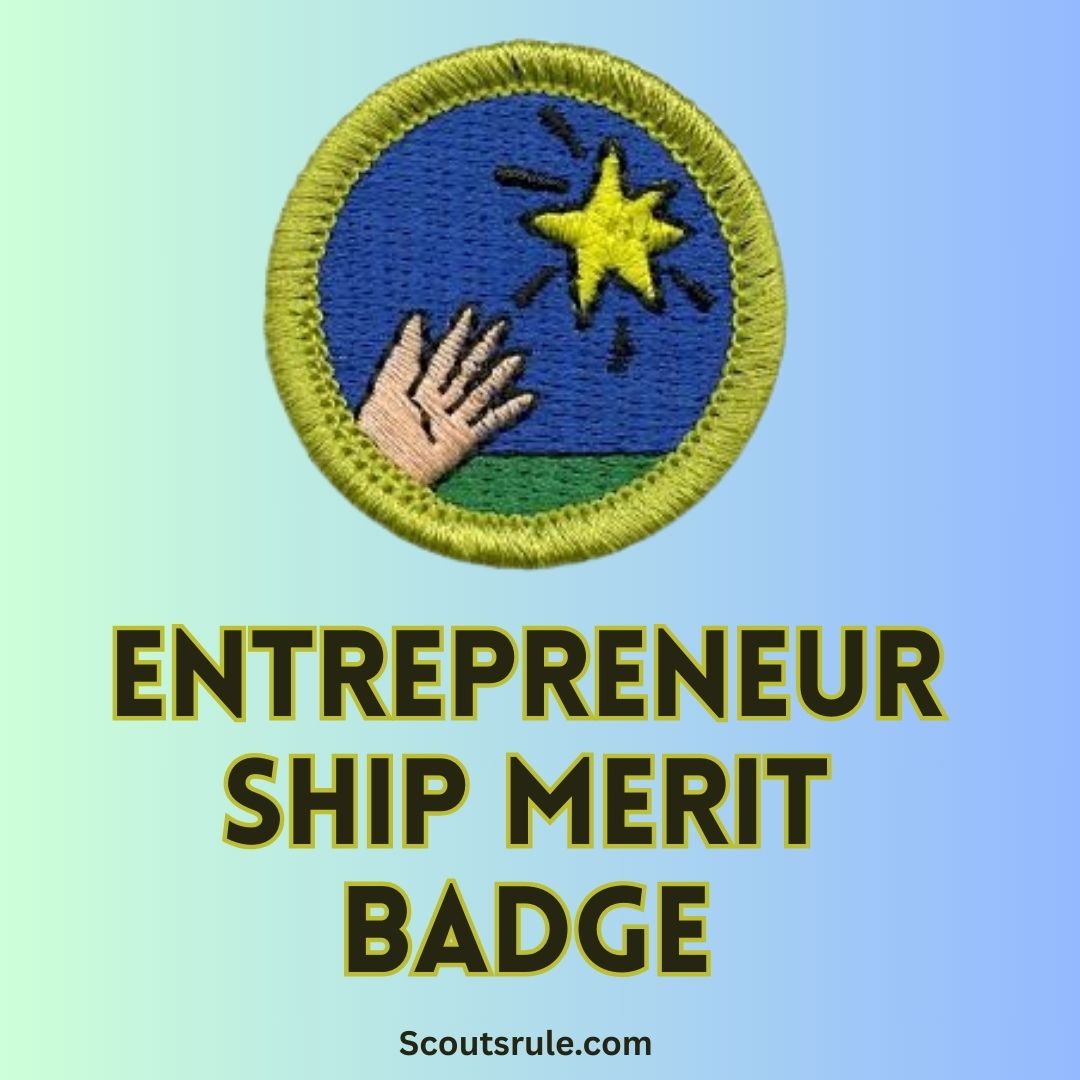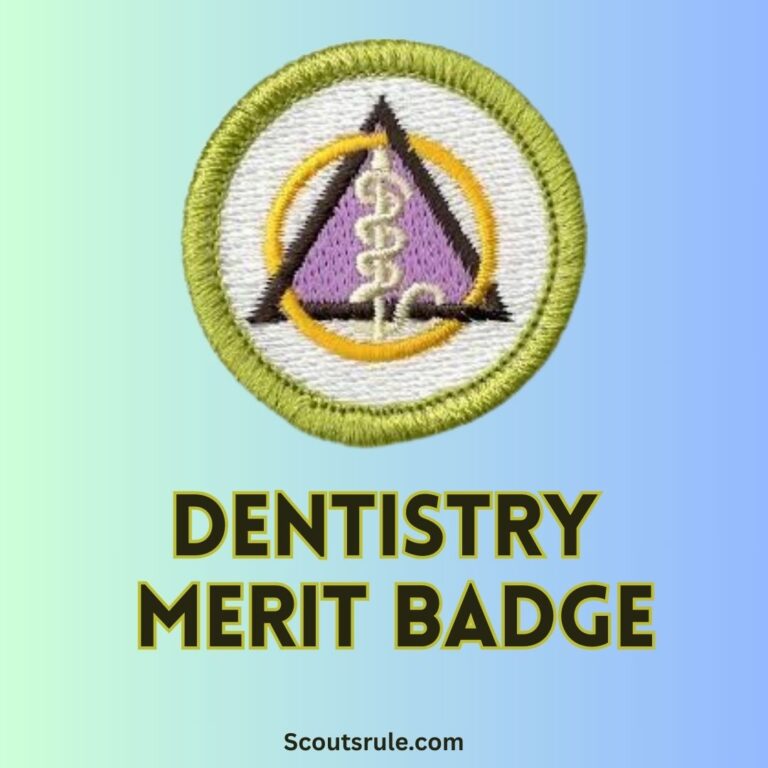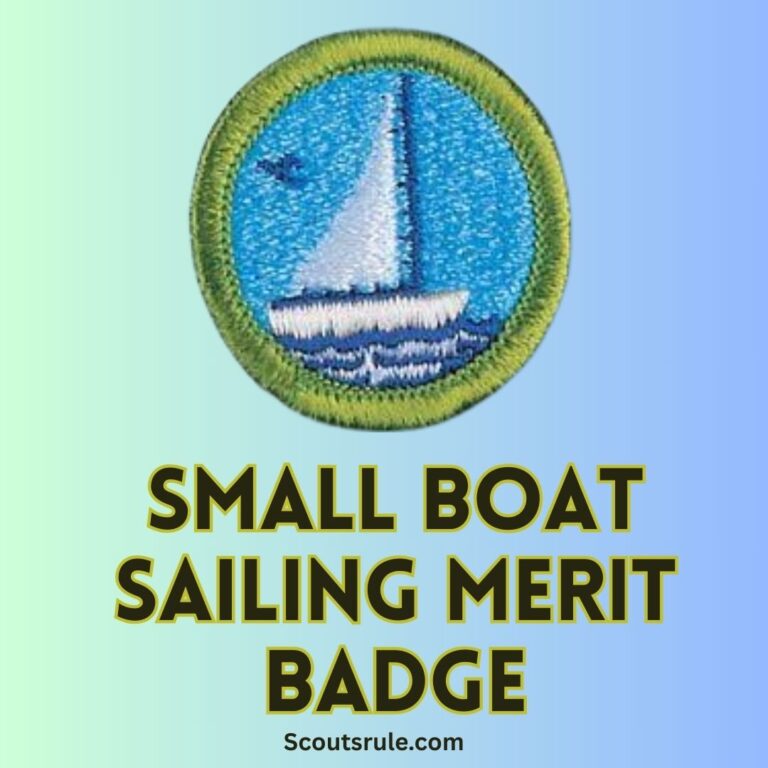
This guide is designed to help you explore the exciting world of entrepreneurship—from defining what it means to be an entrepreneur and developing essential skills, to researching business ideas, interviewing a business owner, creating a detailed business plan, and reflecting on the ethical and social impacts of entrepreneurial ventures. Whether you plan to launch your own start-up, work in business management, or simply wish to understand how entrepreneurs contribute to our economy, this guide will walk you through every requirement step by step, offer practical project ideas, and provide valuable strategies for research and documentation.
Post Contents
- Introduction: The Spirit of Entrepreneurship
- 2. Purpose and Objectives of the Entrepreneurship Merit Badge
- 3. Defining Entrepreneurship and Its Impact
- 4. Essential Skills for Entrepreneurs
- 5. Interviewing a Business Owner: Learning from Real Experience
- 6. Developing Your Business Idea
- 7. Creating a Detailed Business Plan
- 8. Imagining the Future of Your Business
- 9. Business Ethics, Social Responsibility, and Sustainable Practices
- 10. Documentation and Presentation Strategies
- 11. Additional Tips, Resources, and Career Exploration
- Conclusion: Embracing the Entrepreneurial Journey
Introduction: The Spirit of Entrepreneurship
Entrepreneurship is more than the mere act of starting a business—it is a dynamic mindset that encompasses creativity, resourcefulness, risk-taking, and leadership. At its core, entrepreneurship is about finding opportunities, solving problems in innovative ways, and transforming ideas into realities that not only generate profit but also contribute positively to society. It is the driving force behind job creation, technological innovation, and economic growth in the United States and across the globe.
In receiving the Entrepreneurship Merit Badge, you embark on a journey that will expose you to the fundamentals of starting, managing, and sustaining a business. This badge challenges you to gain both theoretical knowledge and practical skills. It pushes you to think like an entrepreneur by asking you to develop a business idea, interact with established business owners, and ultimately create a business plan that might one day serve as the blueprint for one of your future ventures.
Whether you plan on launching your own start-up, leading a project within a company, or simply understanding the economic and social impact of entrepreneurial ventures, the lessons learned here will prove invaluable—both in your personal growth and as a foundation for thoughtful, responsible citizenship.
2. Purpose and Objectives of the Entrepreneurship Merit Badge
The Entrepreneurship Merit Badge is designed with several primary goals:
- Educational Enrichment: You will learn what entrepreneurship is, how it underpins the free enterprise system, and the historical and practical importance of entrepreneurial innovation in building the U.S. economy.
- Skill Development: The badge focuses on building essential skills such as effective communication, strategic planning, organization, problem-solving, decision-making, basic financial literacy, adaptability, technical proficiency, teamwork, and leadership.
- Practical Engagement: Through hands-on projects such as interviewing a business owner, generating a business idea, and developing a detailed business plan, you will gain direct experience that bridges classroom theory with real-world application.
- Critical Analysis and Ethical Reflection: You will examine both the opportunities and risks associated with entrepreneurship, considering the ethical and social responsibilities that successful business leaders must balance alongside the pursuit of profit.
- Civic and Economic Impact: The badge enables you to reflect on how entrepreneurial ventures drive economic change, create jobs, and influence public policy. It also encourages you to recognize how your contributions as an entrepreneur could shape society.
- Career Exploration: By investigating multiple career paths related to entrepreneurship, you’ll gain insights into fields such as business management, marketing, finance, and innovation. This exploration helps you assess which path might best align with your skills and interests.
In essence, the Entrepreneurship Merit Badge is as much about the mindset and values of an entrepreneur as it is about the mechanics of running a business.
3. Defining Entrepreneurship and Its Impact
3.1 What Is Entrepreneurship?
Entrepreneurship is the process of designing, launching, and managing a new enterprise, typically starting as a small business offering a product or service. Entrepreneurs are risk-takers and innovators who search for market opportunities and devise creative solutions to meet consumer needs. They are characterized by their ability to:
- Innovate: Find novel methods or products that address unsolved problems.
- Assume Risk: Invest time, money, and effort in an uncertain venture.
- Create Value: Build products and services that improve quality of life while generating profit.
- Drive Change: Stimulate economic growth and foster societal progress through their initiatives.
In your own words, define entrepreneurship to your merit badge counselor. Explain what it means to take an idea and, through hard work and innovation, turn it into a sustainable, revenue-generating venture.
3.2 Entrepreneurship’s Impact on the U.S. Economy
Entrepreneurship is central to the economic vitality of the United States. Here’s how:
- Job Creation: Every new business has the potential to create jobs. As start-ups grow into medium and large enterprises, they provide employment opportunities and stimulate economic activity.
- Innovation and Technological Advancement: Entrepreneurs drive innovation by developing new products and services that often lead to industry breakthroughs. They challenge existing paradigms and spur competition, which benefits consumers.
- Economic Growth and Wealth Creation: Entrepreneurial ventures contribute directly to economic growth by generating profits that are reinvested into the economy. This cycle of investment, expansion, and innovation underpins the nation’s overall prosperity.
- Social Change: Many modern entrepreneurs also focus on solving social problems—ranging from healthcare improvements to environmental sustainability—which in turn enhances community well-being.
Reflect on famous entrepreneurs like Steve Jobs, Bill Gates, or Warren Buffett and consider how their innovative ventures have altered industries, defined consumer expectations, and ultimately shaped the U.S. economy.
4. Essential Skills for Entrepreneurs
Successful entrepreneurs possess a blend of skills that enable them to navigate the complexities of starting and running a business. Discuss with your counselor why each of the following skills is vital:
- Communication: Effective communication is key to negotiating, networking, and conveying your vision to customers, investors, and employees. Clear communication helps in marketing your idea and building a loyal customer base.
- Planning and Organization: A solid business plan, realistic timelines, budgeting, and resource allocation are critical for turning an idea into a viable business. Strong planning skills ensure that you are prepared to manage challenges and seize opportunities as they arise.
- Problem Solving: Entrepreneurs encounter unexpected obstacles. The ability to think critically and devise innovative solutions is crucial for overcoming issues and keeping the business on track.
- Decision Making: Every entrepreneur must make tough decisions—both big and small. Sound judgment, informed by data and intuition, is necessary to steer your venture toward success.
- Basic Math and Financial Literacy: Understanding profit margins, cost analysis, and cash flow is essential. This knowledge is used when determining budgets, pricing strategies, and forecasting growth.
- Adaptability: Markets change rapidly. Being flexible and able to pivot when necessary is key to sustained success in a dynamic economy.
- Technical and Social Skills: From understanding modern software and communication tools to networking and relationship building, these skills help in managing both the operational and interpersonal parts of your business.
- Teamwork and Leadership: As your endeavor grows, leading and inspiring a team becomes increasingly important. Effective teamwork turns a group of individuals into a cohesive unit capable of executing a shared vision.
Discuss personal examples where you have demonstrated these skills in school projects, community activities, or other extracurricular pursuits. Explain how refining these abilities will not only help you in business but also contribute to your overall personal and academic growth.
5. Interviewing a Business Owner: Learning from Real Experience
A critical piece of your merit badge work involves engaging directly with someone who has firsthand experience in entrepreneurship. This interview provides valuable insights into the real challenges, risks, and celebrations of starting a business.
Preparing for the Interview
- Identify a Local Entrepreneur: With parental help and counselor approval, select a business owner who is willing to share their experiences. This person might be a small business owner, a family entrepreneur, or a local start-up founder.
- Develop Thoughtful Questions: Prepare questions such as:
- What inspired you to start your business?
- How did you generate your business idea?
- What were the biggest challenges you encountered in the early stages?
- Which skills do you consider most essential for your success?
- How do you manage risk and overcome setbacks?
- What advice would you give to a young person interested in entrepreneurship?
Conducting the Interview
- Be Prepared and Respectful: Arrive on time, introduce yourself clearly, and explain your project’s purpose. Listen carefully and take detailed notes or record the interview (with permission).
- Document the Experience: After the interview, write a comprehensive report summarizing the key points, including any advice or insights that particularly resonated with you. Reflect on how their experience informs your understanding of entrepreneurship.
This real-world perspective adds depth to your research and provides a personal narrative that connects theoretical knowledge with everyday business challenges.
6. Developing Your Business Idea
At the heart of entrepreneurship lies a business idea that is both innovative and viable. This section of your work challenges you to generate your own idea and explore its potential.
6.1 Generating a Product or Service Idea
- Brainstorming: Think about common problems or needs you see in your community, school, or among your peers. Consider how a new product or service could address these issues.
- Idea Evaluation: Evaluate your ideas by asking:
- What problem does this idea solve?
- Who would be interested in buying or using it?
- How is your idea different from what already exists?
- What resources would be required to make it a reality?
- Documenting Your Idea: Write a clear description of your concept. Include sketches or diagrams that help visualize your product or service. This preliminary documentation will serve as the foundation for your business plan later.
6.2 Identifying Target Customers and Assessing Competition
- Target Market: Define who your potential customers are. Consider age, income, geographic location, and interests. Understanding your market is essential for tailoring your product and marketing strategies.
- Competitor Analysis: Identify any existing companies or products that solve a similar problem. Explain what makes your idea unique—this is your unique selling proposition (USP). Use surveys or interviews with potential customers, if possible, to get feedback on your concept.
This phase integrates creativity with market research, ensuring that your idea is practical, desirable, and distinct.
7. Creating a Detailed Business Plan
After refining your idea and confirming its market viability, the next step is to develop a comprehensive business plan. This plan outlines how you intend to turn your concept into a functioning business.
7.1 Components of a Business Plan
Your business plan should address the following key components:
- Product/Service Description: Provide a detailed description of your product or service. Explain what it is, how it works, and what problem it solves.
- Market Analysis: Write about your target market. Include details on customer demographics, preferences, and purchasing habits. Discuss the competitive landscape and describe how your position in the market can carve out a niche for your business.
- Marketing Strategy: Explain how you plan to promote your business. This might include social media marketing, local advertising, and innovative town-hall presentations. Outline your pricing strategy and any promotional methods.
- Financial Projections: Forecast your start-up costs, expected revenues, and operating expenses. Detail your funding requirements—whether through personal savings, loans, or potential investment—and explain how you plan to achieve profitability.
- Management and Organizational Structure: Describe your role and any future staffing needs. Discuss the qualities required to manage your business and maintain operational efficiency.
- Risk Management: Identify potential risks (market changes, competition, operational setbacks) along with your strategies for mitigating those risks.
7.2 Promotion, Pricing, and Distribution
- Promotion: Decide on channels to advertise your product. Consider digital marketing, flyers, local events, and word-of-mouth networks.
- Pricing: Determine the cost of goods sold, market pricing, and your profit margins. Include how you plan to adjust pricing as your business scales.
- Distribution: Explain how your product will reach your customers. Will you sell online, in a physical store, or through bulk orders to local businesses?
Be as detailed as possible; your business plan is not only a project requirement but also a tool that you could potentially use as a starting point for a real venture.
8. Imagining the Future of Your Business
Entrepreneurship involves vision—looking ahead at how your business might grow and impact society.
- Future Projections: Write a narrative about where your business might be five, ten, or even twenty years from now. Consider expansion strategies such as opening additional locations, diversifying your product line, or scaling your operations globally.
- Social and Economic Impact: Reflect on how your business could contribute to your local economy, create jobs, or even drive social change. Discuss sustainable practices and how ethical business behavior can create a positive public image and long-term success.
This foresight exercises your ability to strategize and adapt, affording you insights that many future entrepreneurs must grapple with.
9. Business Ethics, Social Responsibility, and Sustainable Practices
Successful businesses today balance the pursuit of profit with ethical considerations and social responsibility. In this section, consider the following:
- Ethical Decision Making: Reflect on specific scenarios where business decisions involve ethical dilemmas. Describe how an entrepreneur might navigate these complexities responsibly, ensuring fairness, transparency, and honesty.
- Social Responsibility: Discuss how your business could support community welfare—through, for instance, engaging in charitable activities or limiting negative environmental impacts.
- Sustainable Strategies: Examine how integrating eco-friendly practices (like waste reduction, sustainable sourcing, or creating green products) can not only attract customers but also contribute to global sustainability efforts.
Discuss real-world examples such as companies with strong corporate social responsibility (CSR) programs, and consider how your business plan might incorporate these ideals.
10. Documentation and Presentation Strategies
Organized documentation is critical for earning the Entrepreneurship Merit Badge.
- Build a Digital Portfolio: Create a folder (digital or physical) where you safely keep your research notes, interview transcripts, sketches, business plan drafts, and photographs of relevant activities.
- Keep a Reflective Journal: Write regular entries about your progress. Discuss what you’ve learned during interviews, brainstorming sessions, and project planning—even setbacks provide valuable lessons.
- Prepare a Final Presentation: Develop a comprehensive presentation that summarizes your business idea, business plan, and overall entrepreneurial journey. This presentation could be conducted as a slide show, a written report, or even a video.
- Visual Aids: Use diagrams, flow charts, and graphs to illustrate financial projections, market analysis, and the structural components of your business plan. Visual elements help articulate complex ideas and engage your audience.
- Solicit Feedback: Regularly share your documentation with your merit badge counselor, teachers, or family members. Use their feedback to refine your work and ensure your submission is comprehensive.
11. Additional Tips, Resources, and Career Exploration
Additional Tips
- Engage in Group Brainstorming: Collaborate with other Scouts interested in business. Group sessions can provide fresh ideas and constructive critique of your business concept.
- Leverage Online Resources: Websites such as Khan Academy, Coursera, or the U.S. Small Business Administration (SBA) offer free courses and guides on entrepreneurship, finance, and marketing.
- Use Business Planning Software: Consider using free software or templates (like those from SCORE.org) to help structure your business plan.
- Real-World Feedback: If possible, test your business idea at a small scale. Ask for feedback from potential customers through surveys or focus groups, even in informal settings.
Resources
- Entrepreneurship Websites: Explore Entrepreneur.com, Inc.com, and the SBA website for tips, inspirational stories, and business planning advice.
- Books and Podcasts: Consider classic business books or entrepreneurship podcasts that discuss the journeys of successful innovators.
- Local Business Leaders: Interview local entrepreneurs or attend local business events. Firsthand insights always provide invaluable context.
- Mentor Programs: Look into local mentorship opportunities for young entrepreneurs. Some schools, community organizations, or business associations offer mentorship programs that guide aspiring entrepreneurs.
Career exploration is also a key focus for this badge. Make a list of various career paths related to entrepreneurship such as:
- Small business owner
- Business analyst
- Marketing manager
- Financial consultant
- Venture capitalist
- Operations manager
Reflect on the skills and interests you have and consider which career paths resonate with you. This exploration not only enriches your current project but may also influence your future educational and professional choices.
Conclusion: Embracing the Entrepreneurial Journey
The Entrepreneurship Merit Badge is a comprehensive exploration into the art, science, and spirit of starting and managing a business. Through this badge, you explore the quintessential traits of entrepreneurship: creativity, resilience, and the willingness to take on risks in pursuit of innovation. You learn the essential skills required to turn an idea into a thriving enterprise—from effective communication and meticulous planning to leadership and ethical decision-making.
By interviewing experienced business owners, researching historical and modern examples, and developing your own business concept and plan, you not only gain practical knowledge but also learn valuable life lessons in perseverance and adaptability. Reflect on how a business idea can evolve over time and how entrepreneurial ventures influence local communities and the broader economy.
As you compile your research, document your field experiences, and design your business plan, you are shaping a portfolio that might serve you well in future academic or career endeavors. The skills you acquire—be it analyzing market trends, managing finances, or understanding ethical responsibilities—are the building blocks for success in any professional path.
Remember that entrepreneurship is not just about financial gain. It is also about creating value for others, addressing societal challenges, and demonstrating innovation in a rapidly changing world. With diligence, creativity, and integrity, you can transform a simple idea into something that not only brings profit but also contributes positively to your community.
May your journey toward earning the Entrepreneurship Merit Badge open doors to new opportunities, inspire you to be an innovative problem solver, and empower you to pursue your aspirations confidently. Embrace every challenge as a learning opportunity, and let your entrepreneurial spirit guide you toward a future marked by continuous growth and success.

Hi, Robin here, A former lead Scout and here I share my inspiring stories about USA Scouts, leadership, adventure, how to guides and more.






